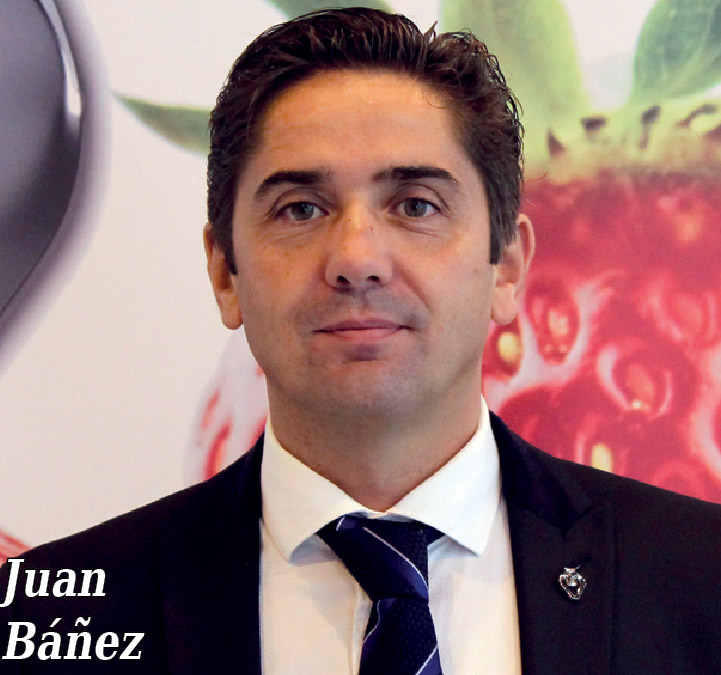Cuna de Platero with more sustainable approaches
Quality, strength, stability, reliability, sustainability and environmental care are the values that have characterised the largest Berry Cooperative located in Moguer, Spain, for a quarter of a century. Last season, Cuna de Platero SCA traded a total of 55,000 tons from a 900 ha cultivated area with 90% in strawberry and the rest mainly in raspberry and blueberry, with a lower portion of blackberry and peach. Their main distribution channels are supermarket chains, although they also work with wholesalers. “Our company philosophy consists of always supplying high quality fruit with great flavour and a distinctive format. We have evolved into a specialist operation responding to multiple requests, assessing the needs of each customer in line with their specific demands for varieties and formats”, says General Manager Juan Báñez. Along with this, he confirms that the company is increasingly more oriented towards production of fruits differentiated by their concern for consumer health and environmental sustainability, ensuring the success and consolidation of Moguer Cuna de Platero SCA. They are currently implementing the ‘Zero Residues’ project, responding to the technical reality of sustainable production without pesticide residues. In this process the fruits receive no specific treatment during growth and ripening, so remain free of chemical products. “In the globalised world we live in, demand is becoming more and more specialised. So we try to respond to each demand. We make a concerted effort to achieve high quality fruits and a standard packaging that takes into account the specific needs of each market. We also take steps to ensure proper management of cooling and transport so that the fruit reaches the end customer in perfect condition”, explains Báñez. Subsequently, we have gradually included internal protocols that ensure stringent food safety management, phytosanitary checks, regulations and certified production quality, traceability, social policy, equality standards and many more factors that guarantee delivery in optimum conditions.


